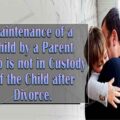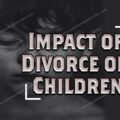
CHENNAI: More than two years ago, Sathish separated from his wife. It was also the last time he saw his children. Though his wife filed for divorce four months later and he asked for visitation rights, the formalities were completed one-and-a-half years later due to the pandemic.
“I get to meet them once a week but the intervening years have been hell for me. They were told I left on work and felt abandoned, as they had no means of reaching out to me,” says the 43-year-old.
When divorce tears a family apart, children suffer the most. But few think about the pain and trauma a non-custodial parent goes through, especially if the one who has custody keeps away the child.
Parental alienation, when a child becomes estranged from one due to the other parent’s actions or psychological manipulations, is a syndrome recognised by mental health professionals across the world. And it is a growing problem in a society where divorces are on the rise. At present, 1,24,150 cases are pending in family courts in Tamil Nadu and Puducherry. “Every month nearly 400 cases are registered in family courts in Chennai,” says lawyer Ram Santhanakrishnan.
According to him, there are many causes of parental alienation. “When a divorce happens, the parents cut off ties with each other and sometimes even if visitation order is given, it may not be effectively implemented. Or one parent could be conscious that the child is more attached to the other parent and so tries to keep that parent away,” says Santhanakrishnan.
It has a devastating impact on the parent who is distanced from the child. With little or no access to children, a parent battles anxiety, depression, and develops low self-esteem. “The parent feels a sense of abandonment and rejection as they feel they have lost the child,” says psychiatrist Dr N Rangarajan, who has seen many cases where one parent is denied custody and the other doesn’t let him/her visit. “The child grows up believing the other parent is abusive or dangerous and shouldn’t come home,” he says.
The lack of resources to help parents who are cut off, prompted Gazal Raina to set up support groups for non-custodial parents. “I separated from my husband in 2013 and got divorced in 2015 and that’s when I realised how tumultuous it can be to lose access to a child,” says Gazal, who has had no contact with her son since she separated. “He was 16 then and could choose who he wanted to live or interact with and though I have tried to reach out, it’s been in vain,” says Gazal. “It is a heart-breaking experience. While you can cope with divorce, it’s painful when your child shuns you. There is a lot of guilt and fear and you begin questioning yourself.”
So she started Bodhi, a support group for non-custodial parents, in Bengaluru, in 2016. Having moved to Chennai in 2017, she started a similar group, Milaap, in 2019. “It has 100 members across the world and we have weekly meetings where we discuss a variety of topics — be it co-parenting, remarriage, dating in the mid-40s, handling fear, or financial literacy,” says Gazal, who has brought in lawyers, social workers and psychiatrists as mentors. “So, people can get legal advice, or psychological support. More importantly the group is a space where you meet others who have had similar experiences, and so are empathetic,” says Gazal. The group also has a Facebook page and a YouTube channel. “Meeting people who are facing the same situation has been a source of comfort,” says Sathish.
Advocate Sudha Ramalingam says she often sees parents using children to settle scores. “There is a greater need for third party intervention in these matters. In many cases, families of the spouses don’t intervene, so there is no counselling within the family,” she says. “So you need external agencies, such as professional counsellors, NGOs, or the court.”
People should realise it’s a child’s right to have both parents, says Sudha. “The child cannot divorce a father or mother, so you shouldn’t push the child to say he/she prefers one parent over the other as they will end up feeling guilty. Often, the child clings on to the parent he/she is living with as they don’t want to be the cause of anger if they say they like the other parent.”
That’s why courts advocate co-parenting. “It is still evolving, but not an alien concept anymore as the focus is on the welfare of the child,” says Santhanakrishnan, who is also part of Milaap. And some, like 32-year-old Radha are willing to give it a try. “We divorced by mutual consent and decided the our child should be able to meet both parents,” says Radha. “We live in the same city, she lives with her father but meets me regularly and also stays over with me,” she says.
CREDIT : Times Of India





